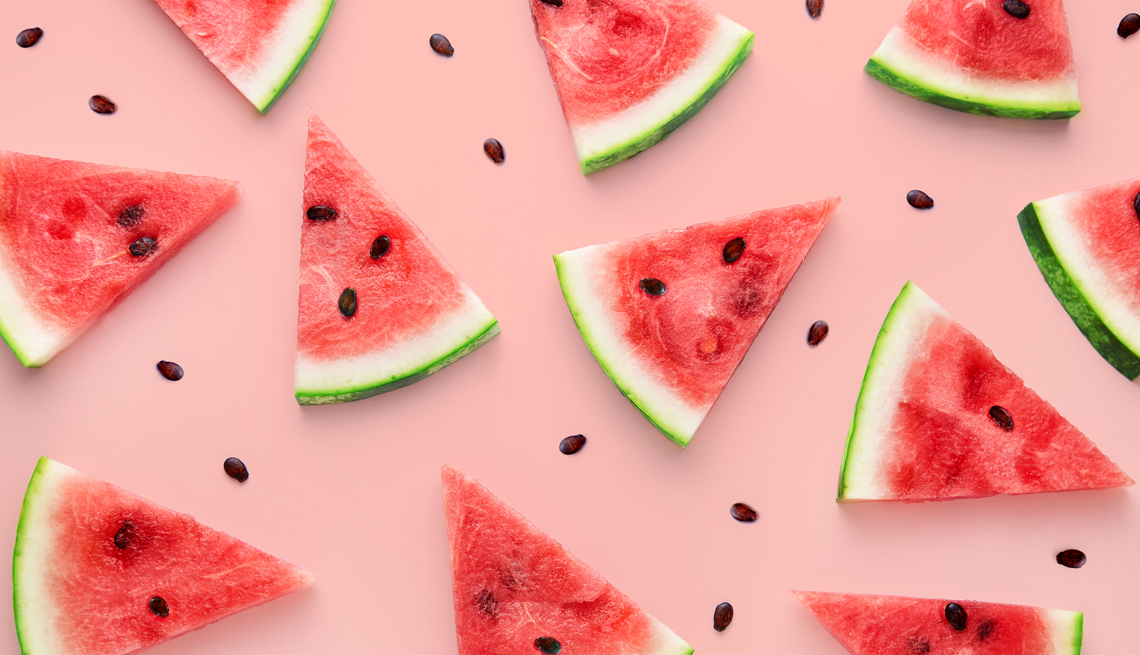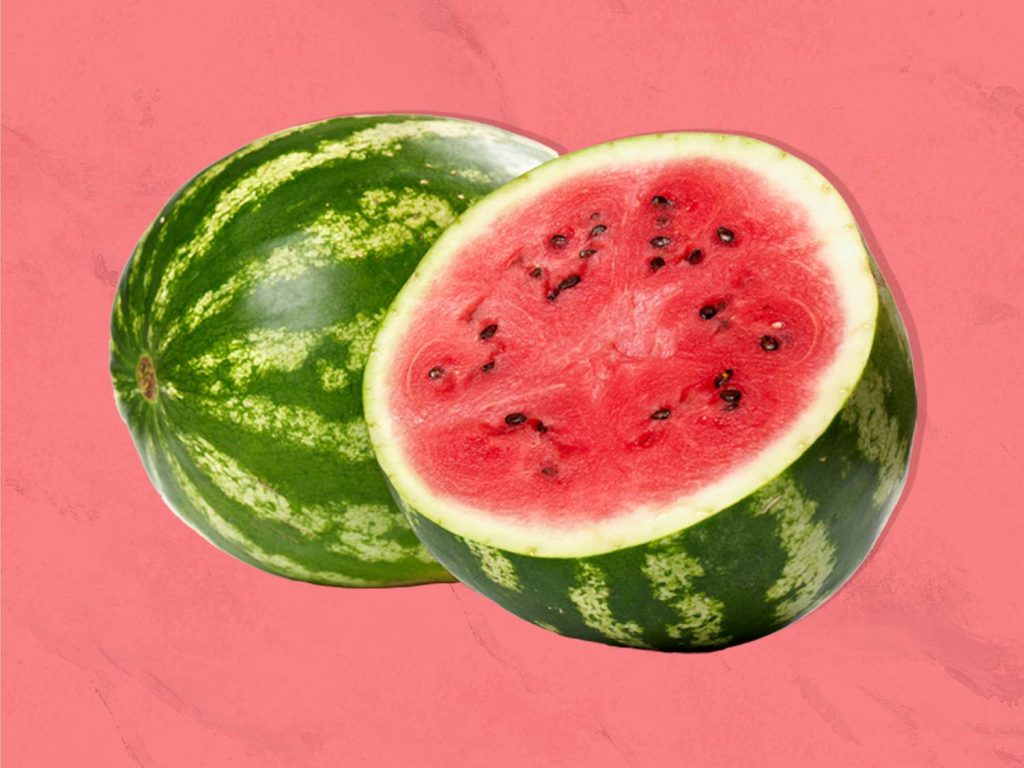Watermelon, with its vibrant red flesh and refreshing taste, is a quintessential summer fruit that not only quenches thirst but also offers numerous health benefits. This article aims to provide Watermelon Knowledge by exploring the hydration benefits and other health advantages of this delightful fruit.
Nutritional Profile of Watermelon

Watermelon is low in calories and packed with essential nutrients, making it an excellent choice for a healthy diet. Here’s a breakdown of its nutritional profile:
- Water Content: Watermelon is composed of about 92% water, making it one of the most hydrating fruits available.
- Vitamins: It is rich in vitamins A and C, both of which are important for immune function, skin health, and vision.
- Minerals: Watermelon contains potassium, which helps regulate blood pressure and supports heart health.
- Antioxidants: The fruit is a good source of antioxidants, including lycopene and beta-carotene, which help combat oxidative stress and inflammation.
Hydration Benefits of Watermelon
1. High Water Content
- Quenching Thirst: With approximately 92% water, watermelon is an excellent choice for stay hydrate, Consuming watermelon can help replenish fluids lost through sweating.
- Electrolyte Balance: Watermelon not only hydrates but also provides essential electrolytes, such as potassium and magnesium. These minerals help maintain fluid balance in the body, making watermelon a great post-exercise snack.
2. Low-Calorie Snack
Watermelon is a low-calorie fruit, making it an ideal option for those looking to maintain or lose weight:
- Satisfying Sweetness: The natural sweetness of watermelon can satisfy cravings for sugary snacks without the added calories. A one-cup serving of watermelon contains only about 46 calories, making it a guilt-free treat.
- Portion Control: Due to its high water content, watermelon can help you feel full and satisfied, reducing the likelihood of overeating. It can be a great addition to meals or enjoyed as a refreshing snack.
3. Nutrient-Rich
Watermelon is not just hydrating; it also provides essential nutrients:
- Vitamin C: One cup of watermelon provides about 21% of the recommended daily intake of vitamin C, which is crucial for immune health, skin repair, and collagen production.
- Vitamin A: The beta-carotene in watermelon converts to vitamin A in the body, supporting eye health and vision.
- Antioxidants: Lycopene, a powerful antioxidant found in watermelon, has been linked to various health benefits, including reduced risk of certain cancers and heart disease.
4. Supports Skin Health
The hydrating properties of watermelon can also benefit your skin:
- Moisture Retention: The high water content helps keep the skin hydrated, promoting a healthy and radiant complexion. Hydrated skin is less prone to dryness and irritation.
- Anti-Aging Effects: The antioxidants in watermelon, particularly lycopene and vitamin C, can help protect the skin from oxidative stress and environmental damage, potentially reducing the appearance of fine lines and wrinkles.
5. Aids Digestion
Watermelon can also support digestive health:
- Fiber Content: While watermelon is not particularly high in fiber, it does contain a small amount that can aid in digestion. Fiber helps regulate bowel movements and promotes gut health.
- Hydration for Digestion: Staying hydrated is essential for optimal digestive function. Watermelon’s high water content can help prevent constipation and promote regularity.
How to Incorporate Watermelon into Your Diet
To enjoy the hydration benefits of watermelon, consider these practical tips for incorporating it into your meals:
1. Fresh Fruit
Eating watermelon fresh is one of the simplest and most enjoyable ways to savor its flavor. Cut it into slices or cubes for a refreshing snack.
2. Salads
Add watermelon to salads for a sweet and juicy twist. It pairs well with feta cheese, mint, and arugula, creating a delicious and hydrating dish.
3. Smoothies
Blend watermelon into smoothies for a refreshing drink. Combine it with other fruits like strawberries or bananas for added flavor and nutrients.
4. Salsas
Use watermelon in salsas to add a unique flavor to grilled meats or fish.
5. Desserts
Incorporate watermelon into desserts for a healthy sweet treat. You can freeze watermelon cubes for a refreshing sorbet or use them as a topping for yogurt.
6. Infused Water
Create a hydrating infused water by adding watermelon to your water pitcher. Let it sit for a few hours to allow the flavors to meld and enjoy a refreshing drink.
Potential Health Risks and Considerations
While watermelon is generally safe for most people, there are a few considerations to keep in mind:
- Allergies: Some individuals may have allergies to watermelon or experience gastrointestinal discomfort after consuming it. If you notice any adverse reactions, discontinue use and consult a healthcare professional.
- Sugar Content: Although watermelon is low in calories, it does contain natural sugars.
- Digestive Issues: Eating large amounts of watermelon may lead to digestive discomfort for some individuals, particularly due to its high water and fiber content. Moderation is key.
Conclusion
Watermelon is a delicious and hydrating fruit that offers numerous health benefits. By providing Watermelon Knowledge, we can appreciate the vital role this fruit plays in promoting hydration and overall well-being.
Incorporating watermelon into your diet can lead to improved hydration, enhanced skin health, and a satisfying snack option. With its refreshing taste and low-calorie profile, watermelon is a perfect choice for hot summer days or as a post-workout treat. Enjoying this delightful fruit allows you to savor its flavor while reaping its many health benefits. Whether consumed fresh, blended into smoothies, or added to salads, watermelon is a versatile addition to a healthy diet. Embrace the power of watermelon and unlock its potential for better hydration today!
Read Also About Olive oil, especially extra virgin olive oil, is a staple of the Mediterranean diet and is renowned for its numerous health benefits. Rich in monounsaturated fats and antioxidants, olive oil promotes heart health, reduces inflammation, and supports brain function.


